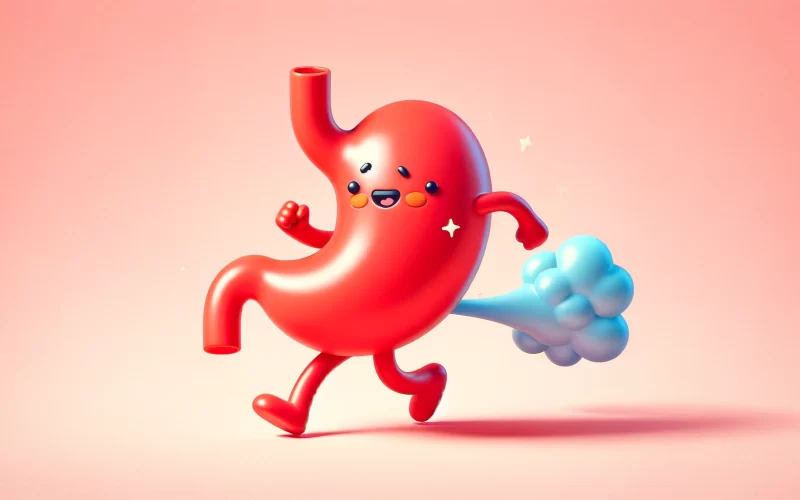If you’re the type of person who could (unfortunately) clear out a room with a single toot, you may be more than just a party trick. While everyone farts—it’s as natural as breathing, after all—excessive gas can sometimes signal that your gut is trying to tell you something important. So, let’s dive into the windy path of gut health, explore some conditions that could lead to those cheeky trumpet blasts, and discuss how you can manage your body’s boisterous way of conversing with the world.
Understanding the Root of the Problem
1. The Basics of a Fart
First things first, let’s talk about what a fart is. Simply put, it’s a combination of gases (like nitrogen, hydrogen, and sometimes methane) that your body produces during digestion. The sound? That’s just the gas making its grand exit through a very tight space. The smell? Thank hydrogen sulfide and other scented compounds for adding a personal touch to each emission.
2. Why So Gassy?
Everyone farts around 5 to 15 times a day; it’s a sign of a healthy digestive system. But if your farts are frequent enough to make you think about investing in air fresheners in bulk, it might be time to look at your diet and health.
Common Culprits of Excessive Gas
1. Dietary Decisions
- Fiber Fiesta: High-fiber foods are fantastic for your digestion but can cause more gas. Beans, broccoli, and whole grains, I’m looking at you!
- Sugar Rush: Foods high in refined sugar can ferment in the gut and produce gas.
- Lactose Overload: If you’re lactose intolerant, dairy products can be like a gas factory working overtime in your stomach.
2. Gut Health Conditions
- Irritable Bowel Syndrome (IBS): This can cause cramping, abdominal pain, and yes, gas.
- Small Intestinal Bacterial Overgrowth (SIBO): More bacteria = more gas. It’s a simple math problem with stinky results.
- Food Intolerances: These can cause excessive gas, especially if you eat something your body struggles to process.
Irritable Bowel Syndrome vs. Inflammatory Bowel Disease
Wind-relieving Strategies
Now that we’ve pinpointed some possible reasons why your body might be acting like a balloon at a birthday party, let’s deflate the situation with some solutions.
1. Diet Adjustments
- Keep a Food Diary: Track what you eat and how it affects your gut. Sometimes, small adjustments can lead to big relief.
- Increase Fiber Slowly: If you’re not used to a lot of fiber, ramp it up gradually. Let your gut get used to the party guests.
- Experiment with Exclusions: Try reducing dairy or gluten and see if you notice a decrease in your personal foghorn episodes.
2. Lifestyle Changes
- Exercise Regularly: Movement helps move your digestive system along, too.
- Stay Hydrated: Fluids can help prevent constipation, which often accompanies excessive gas.
3. Medical Consultation
- See a Specialist: If nothing seems to help, it might be time to consult someone who spends their day thinking about guts.
The Bottom Line
Farting is a natural, necessary part of human biology, but it doesn’t have to run (or ruin) your life. By understanding what might be causing an uptick in your gas production and adjusting accordingly, you can help your gut help you. And remember, next time you feel a little embarrassed about a public poot, just think: It’s just your body’s way of giving a shout-out to your gut health.

